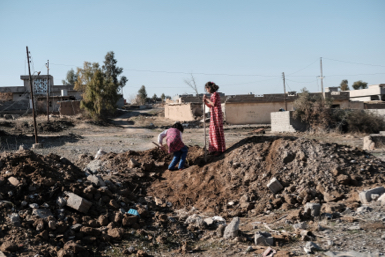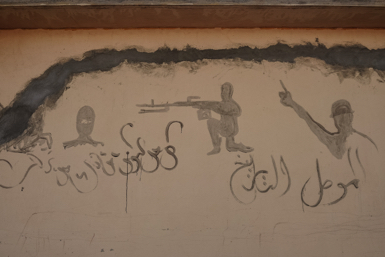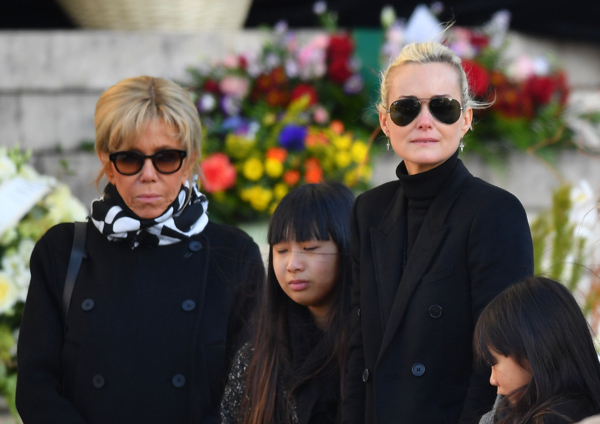By Chris Deliso
A high-level Washington conference on the plight of Christian minorities in the Middle East and Holy Lands revealed much about the similarities – and differences – of approach between these peoples and those who wish to support them.
Last week’s third International Religious Freedom Conference brought together clerics, academics, officials and advocates. This annual event derives from the 2014 Jerusalem Joint Declaration of Pope Francis and Ecumenical Patriarch Bartholomew. They urged closer cooperation between all Christian denominations, and voiced their "shared profound concern for the situation of Christians in the Middle East and for their right to remain full citizens of their homelands,” the Vatican website reported.
The long-desired reunion of Eastern and Western Churches, one that eluded the two sides at the 1438-39 Council of Ferrara-Florence, will not happen anytime soon, due to doctrinal and other disagreements. However, the fact the recent conference was held at all indicates a concentrated determination to protect ancient Christian populations that have been decimated on an unprecedented scale in Syria and Iraq, and which face discrimination everywhere from Turkey to Egypt. As several pointed out, this is a problem of at least decades (and, in some cases, centuries), but one which became particularly acute following the 2011 ‘Arab Spring’ events that emboldened Islamic extremists and toppled governments, leading to destabilisation and war.

Nevertheless, though the spirit may be willing, an effective policy approach and providing requisite ground relief and safety remain lacking. An important conclusion from the event was that communication must be enhanced between different Christian denominations, to better understand the possibilities and limitations of future cooperation and to recognise the rich diversity of all Christian denominations.
The most significant of these, in terms of conference organisation, is the Greek Orthodox Church; indeed, the demonstrated capability of the Greek church and diaspora to bring together prominent personalities from government, academia and diverse religious leaderships remains remarkable. The event was hosted by the Order of St Andrew, Archons of the Ecumenical Orthodox Patriarchate of Constantinople (Istanbul). This lay order was created in 1966 to honour distinguished promoters of Christian values and the Patriarchate. The Order specifically invokes the legacy of St. Andrew, the apostle to Anatolia crucified by the Romans in Patras, becoming a venerated martyr. (Pope Paul returned Andrew’s skull to the Greek city in 1967).
Continued martyrdom in Biblical lands was indeed a key conference theme. Devout Catholic Congressman Jeff Fortenberry revealed that Pope Francis had given him a small crucifix; it had belonged to a Syrian Christian boy beheaded for refusing to convert to Islam. The boy’s mother had taken it to Europe during the refugee crisis. For Fortenberry, the decimation of Christians in the Middle East constitutes genocide: “what needs to be done is resurrection, revitalization and repatriation,” he said.
Significantly, religious liberty (not geopolitics) is now inspiring US lawmakers. The need for “vigorous US leadership and diplomacy” in defence of religious freedom was stated by Representative Chris Smith. This longtime advocate also urged “enhanced religious freedom training” for State Department officials and diplomats, and even “integrating religious freedom into every aspect of US foreign policy.” Citing an increase of blasphemy laws worldwide, Senator James Lankford opined that America “should not freely trade with a country that doesn’t recognize religious liberty.” Other lawmakers present also supported sanctioning countries that fail the religious freedom test.
This proscriptive tendency has long pervaded US policy-making and, in religious matters, may partly stem from a muscular and America-centric Evangelicalism. The suggested policy would utilise the (already existing) annual religious freedom reports compiled by the State Department; anyone who has seen such diplomats compiling data in the field knows these reports have their flaws. Politicising religion for a specific cause (like pressuring Turkey to reopen the Patriarchal Halki Seminary, closed since 1971) may be one thing, but the proscriptive approach becomes hazier concerning general protection of diverse Christian groups.
Will Christians of the Holy Land embrace such an approach? Clearly, they seek and need attention. Yet noting Catholic University Professor Sidney Griffith’s prior comments on learning from history, Antiochian Orthodox Church Reverend Isaac Crow reminded that Western intervention, “however well intended,” has often played out “to the detriment of local Christian populations.”

A point reiterated by speakers like Syriac Orthodox Church Archbishop Dionysius Kawak and World Council of Arameans President Johny Messo, among others, is that even persecuted Christians want to remain in their ancestral homelands.
The most important revelation of the event, perhaps, was that all Christian leaders expressed their own unique identities and challenges. And again confirming a common desire to stay in their homelands, they all expressed the need for shared citizenship, shared rights, and equal opportunities to their neighbours: this affects everything from education to economic opportunity or the Jerusalem Patriarchate’s property rights.
All agreed that the urgency of the situation necessitates an ecumenical approach. Christian suffering in far-away lands should not be an abstraction, though society has become “desensitised” to it, noted Angaelos, Coptic Archbishop of London. “As they are cut, we bleed,” he attested, speaking of the Holy Land’s persecuted Christians. “We are members of the same Body. We need to stop using the language of the ‘Church of the East’ and ‘Church of the West’. There is only one Body for us. It rejoices as one, it mourns as one, it also struggles as one.”
Whether or not this goal can be achieved depends on the ability of both the Holy Land’s Christians, and their supporters abroad, to actively communicate and educate a general world public that knows little about the singularities of the region. But in addition to lobbying abroad, this in some particularly beleaguered cases will involve revitalising and re-educating community members who, for various reasons, have lost touch with their Christian roots and homeland.
What should be the role for the Vatican, and the Catholic Church in general? On October 12, 2017 Vatican Radio reported that Pope Francis had just held a Mass in which he prayed for gathered Eastern Church leaders to take courage despite the ongoing persecution they endure. The Mass was specifically meant to commemorate the centenary of the establishment of the Pontifical Oriental Institute, created in 1917 by Jesuits, and still administered by them today. The Institute has primarily been involved in research, education and publishing on ancient Eastern “theology, liturgies, patristics, history, canon law, literature, spirituality, archeology, as well as questions of ecumenical and geopolitical importance.”
These works, which are said to have benefited the deliberations at Vatican II, can certainly help with educational awareness campaigns, if the Church finds a way to make such material interesting and accessible to a wider part of the Catholic population.
PICTURES: Kakai Kurds in Iraq return to rebuild their homes after IS retreat from their villages; IS images are seen on buildings in Ninevah plains ©PA


 Loading ...
Loading ...
What do you think?
You can post as a subscriber user ...
User comments (0)